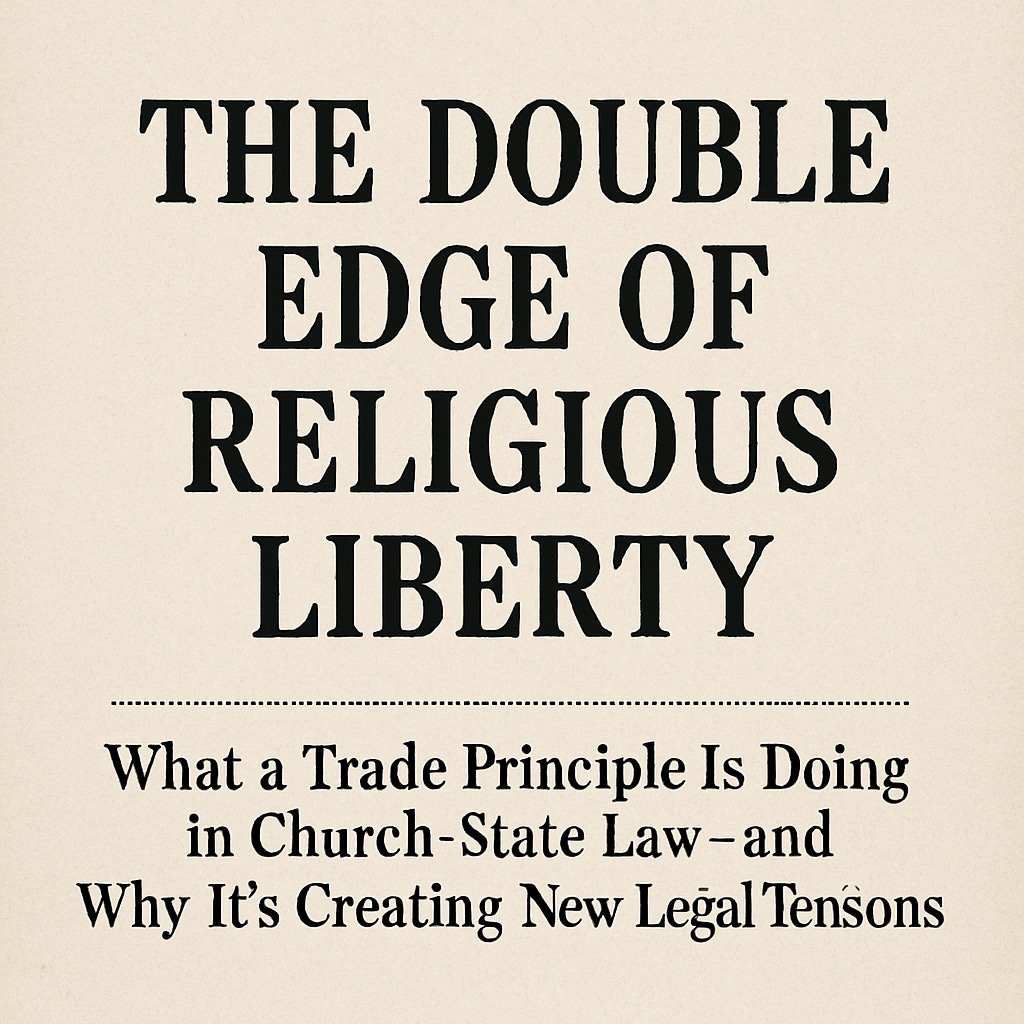What a Trade Principle Is Doing in Church-State Law—and Why It’s Creating New Legal Tensions
In recent years, a once-obscure idea has quietly reshaped the legal landscape of religious liberty. Known as the “most favored nation” (MFN) theory, this concept has become a central part of how courts determine whether the government is treating religious practice fairly. At first glance, MFN theory seems to demand only equal treatment. But as it begins to show up in high-stakes cases involving abortion and transgender care, the question is no longer just how it works—but why it is being used so selectively.
The MFN theory did not begin in the church or the courtroom. Its roots lie in international trade, where MFN clauses prevent favoritism by requiring that trade benefits extended to one nation must be offered to all. If a country lowers tariffs for one trading partner, it must do the same for others with MFN status.
This principle was later adapted into constitutional law following the Supreme Court’s 1990 decision in Employment Division v. Smith. That case held that the government does not need to accommodate religious beliefs under a neutral, generally applicable law—even if the law burdens religious practice. The backlash was swift. Many viewed Smith as stripping the First Amendment of meaningful protection.
In response, some legal scholars began to explore ways to reintroduce judicial scrutiny into Free Exercise cases. Their argument was simple but powerful: if a government creates even one secular exemption to a law, it shows the law is not truly “generally applicable.” And if it is not generally applicable, then religious objections must be taken more seriously. That insight became the basis for the MFN theory of religious liberty.
The Supreme Court embraced this logic in Tandon v. Newsom (2021), striking down California’s limits on religious gatherings during the COVID-19 pandemic. The Court noted that when secular activities like shopping were allowed, religious gatherings could not be singled out for harsher treatment. From there, MFN reasoning began appearing in case after case—school choice, vaccine mandates, and beyond.
But the theory’s rising influence has created new tensions. Some of the same religious liberty advocates who push MFN arguments forcefully in cases involving education or public health have grown quiet when similar logic is raised in cases involving abortion or transgender care. For instance left-leaning religious groups that claim a religious need to provide these services that run against the conservative grain of many religious freedom advocates. The logic of MFN suggests that if a law restricting abortion includes exceptions for life-threatening emergencies, a religious claimant could be eligible for a similar exemption based on belief. Likewise, bans on gender-affirming care that allow certain medical exceptions may open the door to religious exemption claims, under state or federal law.
Yet these claims have not been embraced by groups that usually champion religious liberty. Instead, they are often ignored or even resisted. Meanwhile, progressive legal advocates who could benefit from MFN logic in these very cases have been hesitant to use it, likely out of concern that strengthening MFN would invite its broader use against civil rights protections, such as those barring discrimination based on sexual orientation or gender identity.
That leaves the courts in an increasingly awkward position. They could continue applying MFN arguments broadly in cases involving education or worship while drawing lines around abortion and transgender care. Some recent briefs seem to invite this approach, urging the Court to adopt MFN arguments in religious school funding cases while finding ways to avoid them in reproductive health disputes.
Alternatively, the Court could shift gears entirely. Justice Alito, in his Fulton v. City of Philadelphia concurrence, suggested overturning Smith and replacing it with a more traditional test that would ask whether the government has a compelling interest and has used the least restrictive means. Justice Barrett floated a more cautious idea—one that avoids both Smith and MFN and applies a kind of intermediate scrutiny to religious liberty claims.
Either way, MFN theory is now a central part of the legal debate over religious freedom. What started as a simple rule about equal treatment has become a powerful tool for reshaping the law—and a test of how consistently legal principles are applied when the issues get politically uncomfortable.
The promise of MFN theory is fairness. But the moment it is used selectively or abandoned when inconvenient, it stops being a principle and becomes a tactic. If courts and advocates are going to rely on MFN, the question is not just whether the logic holds—but whether they are willing to follow it all the way.
